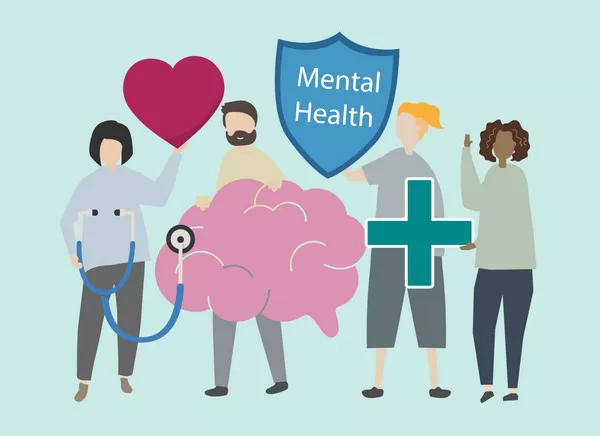Neurocognitive disorders (NCDs), formerly known as dementia, encompass a range of conditions characterized by cognitive decline severe enough to interfere with daily functioning. These disorders not only affect the individuals suffering from them but also pose significant challenges for their families and caregivers. In this article, we delve into the causes, symptoms, diagnosis, and treatment options for neurocognitive disorders, shedding light on the complexities of these conditions and the importance of early intervention.
Neurocognitive Disorders
Neurocognitive disorders arise from various underlying causes, including neurodegenerative diseases, vascular issues, traumatic brain injury, and other medical conditions. Alzheimer’s disease, vascular dementia, Lewy body dementia, and frontotemporal dementia are among the most common types.
Causes of Neurocognitive Disorders:
a. Neurodegenerative Diseases: Alzheimer’s disease, characterized by the accumulation of amyloid plaques and neurofibrillary tangles in the brain, is the leading cause of neurocognitive decline. Other neurodegenerative conditions, such as Parkinson’s disease and Huntington’s disease, also contribute to cognitive impairment.
b. Vascular Issues: Conditions affecting blood flow to the brain, such as strokes and small vessel disease, can lead to vascular dementia, resulting in cognitive deficits.
c. Traumatic Brain Injury: Head injuries, particularly those involving repeated concussions or severe trauma, increase the risk of developing neurocognitive disorders later in life.
d. Other Medical Conditions: Certain medical conditions, such as HIV/AIDS, metabolic disorders, and thyroid abnormalities, can impact cognitive function and contribute to the development of neurocognitive disorders.
Symptoms of Neurocognitive Disorders:
The symptoms of neurocognitive disorders vary depending on the underlying cause and the specific areas of the brain affected. However, common symptoms include:
a. Memory Loss: Difficulty remembering recent events or information, forgetting important dates or appointments.
b. Impaired Judgment: Poor decision-making, difficulty solving problems, and decreased ability to plan or organize tasks.
c. Language Problems: Difficulty finding the right words, trouble following conversations, and challenges with reading and writing.
d. Disorientation: Confusion about time, place, or identity, getting lost in familiar surroundings.
e. Mood Changes: Depression, anxiety, irritability, and personality changes are common in individuals with neurocognitive disorders.
f. Behavioral Symptoms: Agitation, aggression, wandering, and hallucinations may occur, particularly in later stages of the disease.
Diagnosis of Neurocognitive Disorders:
Accurate diagnosis of neurocognitive disorders is crucial for appropriate management and treatment planning. Diagnosis typically involves:
a. Medical History and Physical Examination: A thorough evaluation of the patient’s medical history, including any previous head injuries, cardiovascular issues, or family history of dementia, is essential. A physical examination helps assess overall health and neurological function.
b. Cognitive Testing: Various cognitive tests, such as the Mini-Mental State Examination (MMSE) or the Montreal Cognitive Assessment (MoCA), are used to assess memory, attention, language, and other cognitive functions.
c. Neuroimaging Studies: Imaging tests, such as magnetic resonance imaging (MRI) or computed tomography (CT) scans, help identify structural changes in the brain, such as atrophy or the presence of lesions.
d. Laboratory Tests: Blood tests may be conducted to rule out reversible causes of cognitive impairment, such as vitamin deficiencies, thyroid dysfunction, or infections.
See Also: 5 Mental Health Disorders Associated with Laziness
Treatment of Neurocognitive Disorders:
While there is no cure for most neurocognitive disorders, early diagnosis and intervention can help manage symptoms and improve quality of life. Treatment strategies may include:
a. Medications: Several medications are approved for the treatment of Alzheimer’s disease and other forms of dementia. These drugs work by regulating neurotransmitters in the brain to improve cognitive function and manage behavioral symptoms.
b. Lifestyle Modifications: Adopting a healthy lifestyle, including regular exercise, a balanced diet, adequate sleep, and social engagement, can help slow cognitive decline and enhance overall well-being.
c. Cognitive Rehabilitation: Cognitive training programs and therapies, such as cognitive-behavioral therapy (CBT) and reminiscence therapy, aim to improve memory, attention, and problem-solving skills in individuals with neurocognitive disorders.
d. Supportive Care: Providing a safe and supportive environment for individuals with neurocognitive disorders is essential. Caregiver support groups, respite care services, and long-term care facilities can offer assistance and relief to families facing the challenges of caregiving.
e. Experimental Therapies: Ongoing research is exploring new treatment approaches, including gene therapy, immunotherapy, and stem cell therapy, with the aim of slowing or halting the progression of neurocognitive disorders.
Conclusion:
Neurocognitive disorders pose significant challenges for affected individuals, their families, and society as a whole. Understanding the causes, symptoms, diagnosis, and treatment options for these conditions is essential for early detection and intervention. While there is currently no cure for most neurocognitive disorders, ongoing research offers hope for innovative therapies that may one day improve outcomes for those living with these challenging conditions. In the meantime, a multidisciplinary approach involving healthcare professionals, caregivers, and support networks is vital for managing symptoms and enhancing the quality of life for individuals with neurocognitive disorders.
FAQs
What are the most common types of neurocognitive disorders?
The most common types of neurocognitive disorders include Alzheimer’s disease, vascular dementia, Lewy body dementia, and frontotemporal dementia. Each type is associated with distinct clinical features and underlying neuropathology.
What causes neurocognitive disorders?
Neurocognitive disorders can arise from a range of underlying causes, including neurodegenerative diseases (e.g., Alzheimer’s disease, Parkinson’s disease), vascular issues (e.g., strokes, small vessel disease), traumatic brain injury, and other medical conditions (e.g., HIV/AIDS, metabolic disorders).
What are the symptoms of neurocognitive disorders?
Common symptoms of neurocognitive disorders include memory loss, impaired judgment, language problems, disorientation, mood changes, and behavioral symptoms such as agitation or aggression. The specific symptoms experienced by an individual may vary depending on the underlying cause and the stage of the disorder.


